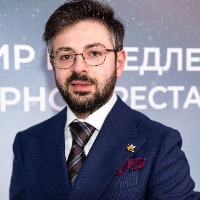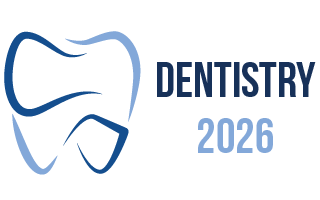3rd European Conference on
Dentistry and Oral Health
May 20-21, 2026 | Barcelona, Spain

Address: Avinguda Del Maresme 78 Ronda De Dalt Exit 15, 08940 Comellà de Llobregat, Barcelona, Spain
Dentistry 2026

Nobel Biocare, Russia
Abstract:
The preservation and reconstruction of peri-implant soft tissues play a crucial role in the long-term stability and esthetic outcomes of implant therapy. Conventional mucogingival procedures, while effective, are often associated with increased morbidity, prolonged healing, and patient discomfort. Recent advances in minimally invasive surgical techniques have introduced refined approaches for managing peri-implant soft tissue deficiencies, aiming to optimize clinical outcomes while reducing patient burden. This article reviews the principles, indications, and clinical protocols of minimally invasive mucogingival surgery around dental implants. Particular emphasis is placed on flapless approach, grafting materials, and microsurgical instrumentation that enable precise manipulation of the peri-implant mucosa. Clinical evidence suggests that these techniques not only enhance keratinized tissue width and soft tissue thickness but also improve esthetics, reduce post-operative complications, and accelerate recovery. The article concludes by discussing limitations, patient selection criteria, and future perspectives for integrating minimally invasive mucogingival procedures into routine implantology practice.
Biography:
Dr. Saba Khurtsilava is an oral surgeon, implantologist with ten years of clinical experience in Moscow. He specializes in implantology, full-arch rehabilitation, bone and soft-tissue augmentation with a focus on minimally invasive techniques. Dr. Khurtsilava is a lecturer and opinion leader for Nobel Biocare, a member of Foundation for Oral Rehabilitation, presenting advanced clinical protocols in implantology and periodontology across Russia, China, South Korea, and CIS countries. He is an invited examiner at the Peoples’ Friendship University of Russia, where he contributes to the academic training of dental students. A winner of the 2018 Millennials Dental Forum (Nobel Biocare)
